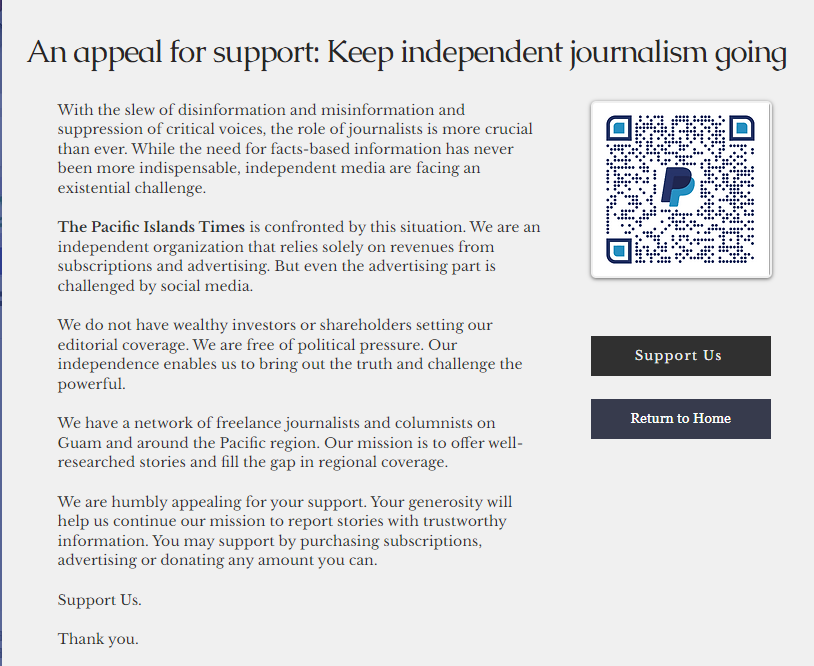
Australian Prime Minister Anthony Albanese and Nauru President David Adeang signed a treaty securing the financial future of the Pacific nation. Photo courtesy of Lowy Institute.
By Mar-Vic Cagurangan
A Fiji-based think tank accused Australia of exploiting its economic assistance to Nauru “to further its geopolitical and security position in the Pacific region."
The Pacific Network on Globalization said a recently signed treaty between Australia and Nauru was consistent with Canberra's diplomatic ploy, which attaches strings to its largesse.
The new treaty allows Canberra to step into the former trust territory’s security affairs and critical infrastructure sectors as a condition tied to AUD$140 million aid.
The aid package consists of AUD$100 million for budgetary support over five years and $40 million for security support.
In a joint statement, Australian Prime Minister Anthony Albanese and Nauru President David Waiau Ranibok Adeang said the treaty “builds on the deep foundations of Australia and Nauru’s bilateral relationship, and will help secure Nauru’s long-term economic resilience and security.”
“Recognizing the security of one of us affects the security of both of us, the treaty provides that Nauru and Australia will jointly agree to any engagement by other countries in Nauru’s security, banking and telecommunications sectors,” the joint statement reads.
The treaty guarantees Nauru citizens’ continuing access to vital banking services through the Commonwealth Bank of Australia, which will build branches in Nauru after the Bendigo Bank’s departure next year.
But PANG said the treaty’s economic component came with “vague commitments to work together to support Nauru's economic resilience, fiscal stability and prosperity.”
On the other hand, PANG pointed out, the security side was “far more explicit with decisions on Nauru's maritime security, defense, policing border protection and cyber-security and critical infrastructure concerning banking and telecommunications to be made mutually.”
“This mutual decision power grants Australia a veto over what is decided in these areas,” the think tank said.
PANG said the Nauru deal was reminiscent of the Falepili Union between Australia and Tuvalu, which was forged in August last year and implemented this year.
The Falepili Union grants Australia security control in Tuvalu in exchange for some aid money and the opportunity to migrate to Australia.
PANG also accused Australia of exploiting sports diplomacy in its bid for security control by setting conditions for funding a Papua New Guinea rugby league.
Australia’s $600 million grant includes a clause stating that funding would cease “if PNG breaches a commitment to maintain Australia as its major security partner.”
“While Australia's overseas development assistance has attracted criticism over the years for decreasing in size and being largely ineffective, the decision to begin formally tying aid more directly to control over security concerns appears to be marking a shift toward conditionality in how Australia is operationalizing its aid money,” PANG said.
“As one of the highest per capita climate emitters and a former colonial administrator that devastated Nauru with phosphate mining, Australia’s role in creating some of the crises that (Pacific island countries) are now having to hand over some of their sovereignty for assistance with is not lost on the Pacific,” PANG said.
Subscribe to
our digital
monthly edition





Store essential oils with ease in Health and Beauty Natural Oils Co.’s 5-liter plastic container. Built for long-lasting use, it ensures safety and freshness for your oils in large quantities. Click Here:- https://www.essentialnaturaloils.com/products/hdpe-plastic-container-with-tamper-evident-cap